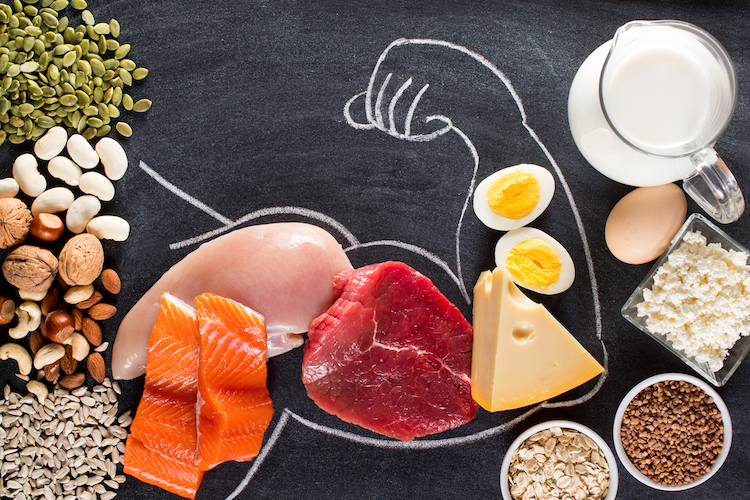
Protein is often considered the hallmark nutrient provided by animal-derived products. Critical for building muscle and supporting physical activity, protein is necessary for us to accomplish our daily tasks and enjoy life.
Not all proteins are created equally, though. Their building blocks — amino acids — vary in bioavailability, or how much the body can actually use them for muscle-building. A study conducted at Purdue University found that protein from animal-derived products provides amino acids that are more bioavailable than those in an equivalent serving size of plant-based protein options.
In the research, 30 young adults and 25 older adults each completed four individual trials separated by at least three days. In two of the trials, they consumed 2 ounce-equivalents of animal-based protein (lean pork loin and scrambled eggs), and during the other two trials, they consumed 2 ounce-equivalents of a plant-based protein (black beans and almonds).
Ounce-equivalent portions are described in the Dietary Guidelines for Americans to baseline foods with similar nutritional content. One ounce-equivalent is equal to 1 ounce of meat, one egg, a quarter-cup of beans, or a half-ounce of nuts.
The Purdue researchers took blood samples of the study participants before eating and at regular intervals afterward, up to five hours after the meal, to measure bioavailability of essential amino acids as well as blood sugar and insulin.
The main finding was that more amino acids were found in participants’ bloodstreams after consuming animal protein meals than plant protein meals. Though the serving sizes in this study were smaller than what is generally consumed, this means protein from animal products is more easily broken down by the human body, making it useful for muscle building. This is in addition to the fact that the pork and eggs contained more total protein to begin with than the beans and almonds.
The study further found that there were no differences in amino acid bioavailability between younger and older adults. The lean pork did result in greater bioavailability than the eggs, but there was no difference between the beans and almonds.
While a varied diet is important to reach the body’s nutritional needs, so is consuming foods that the body can effectively translate into fuel. In the case of protein, animal products do this best. A nutrient-dense, bioavailable food source makes the most difference in helping the body power itself.








